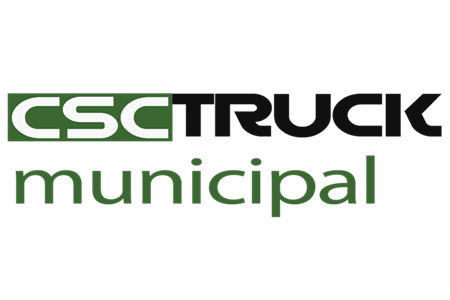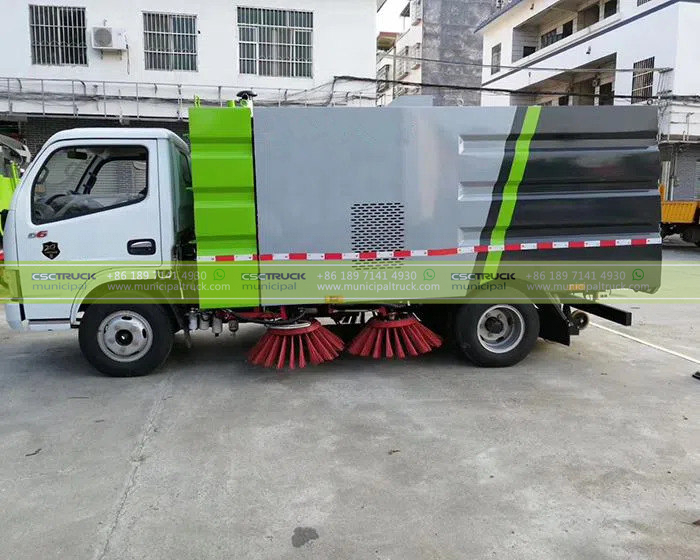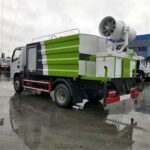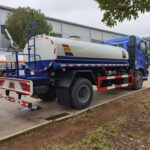Cleanliness is an essential aspect of any well-maintained city. From busy streets to quiet neighborhoods, keeping roads clean and free from debris is crucial for both aesthetics and the overall health and safety of residents. Sweeper trucks play a vital role in maintaining the cleanliness of urban areas, collecting dirt, dust, and litter efficiently. In this article, we will explore the importance of efficient road cleaning and how sweeper trucks contribute to keeping cities tidy.
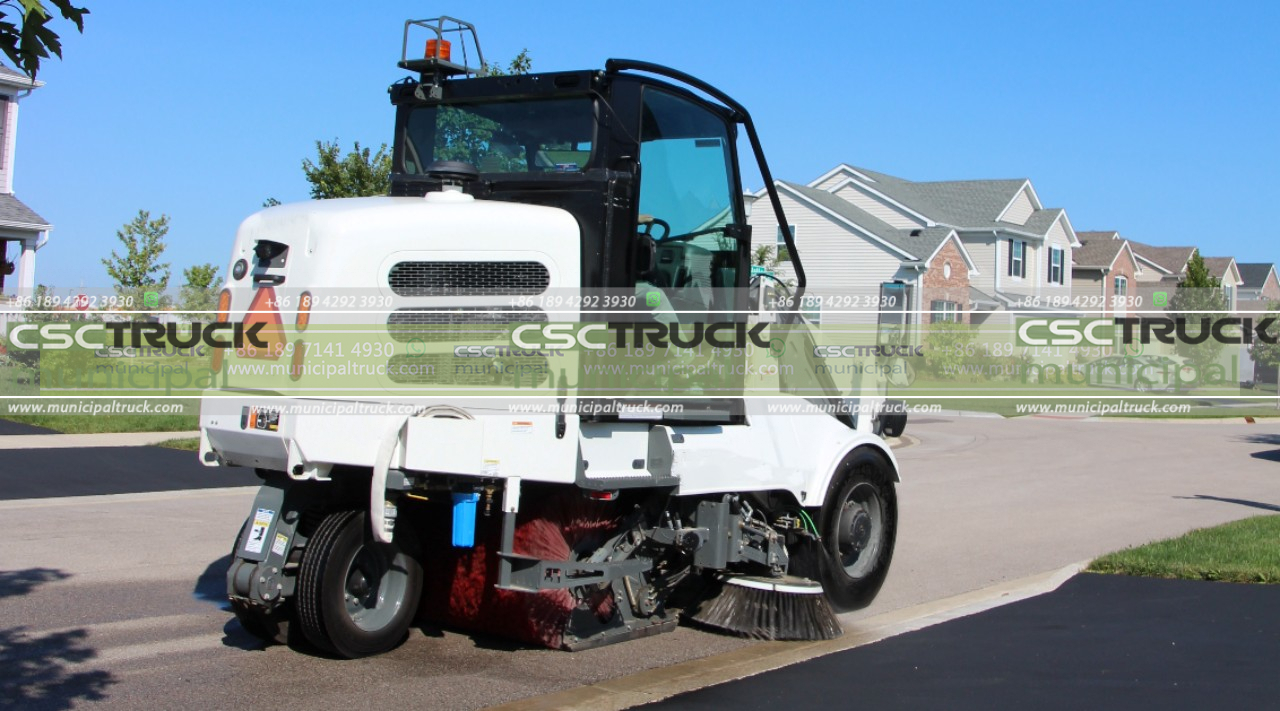
The Need for Efficient Road Cleaning
Roads are the lifelines of any city, facilitating transportation and connecting communities. However, they are constantly exposed to various sources of dirt and debris. Vehicle exhaust, leaves, trash, and construction materials are just a few examples of the substances that accumulate on road surfaces over time.
Efficient road cleaning is necessary for several reasons. Firstly, a clean road enhances the visual appeal of a city. A clean and well-maintained environment not only improves the quality of life for residents but also creates a positive impression on visitors and tourists. Secondly, a clean road reduces the risk of accidents. Debris on the road can obstruct the path of vehicles, leading to potential hazards. Removing such obstacles through regular road cleaning ensures the safety of motorists and pedestrians alike.
Additionally, road cleaning contributes to environmental sustainability. Sweeper trucks help prevent litter and debris from entering storm drains and polluting water bodies. By effectively collecting and disposing of waste, these vehicles play a crucial role in maintaining the ecological balance of urban areas.
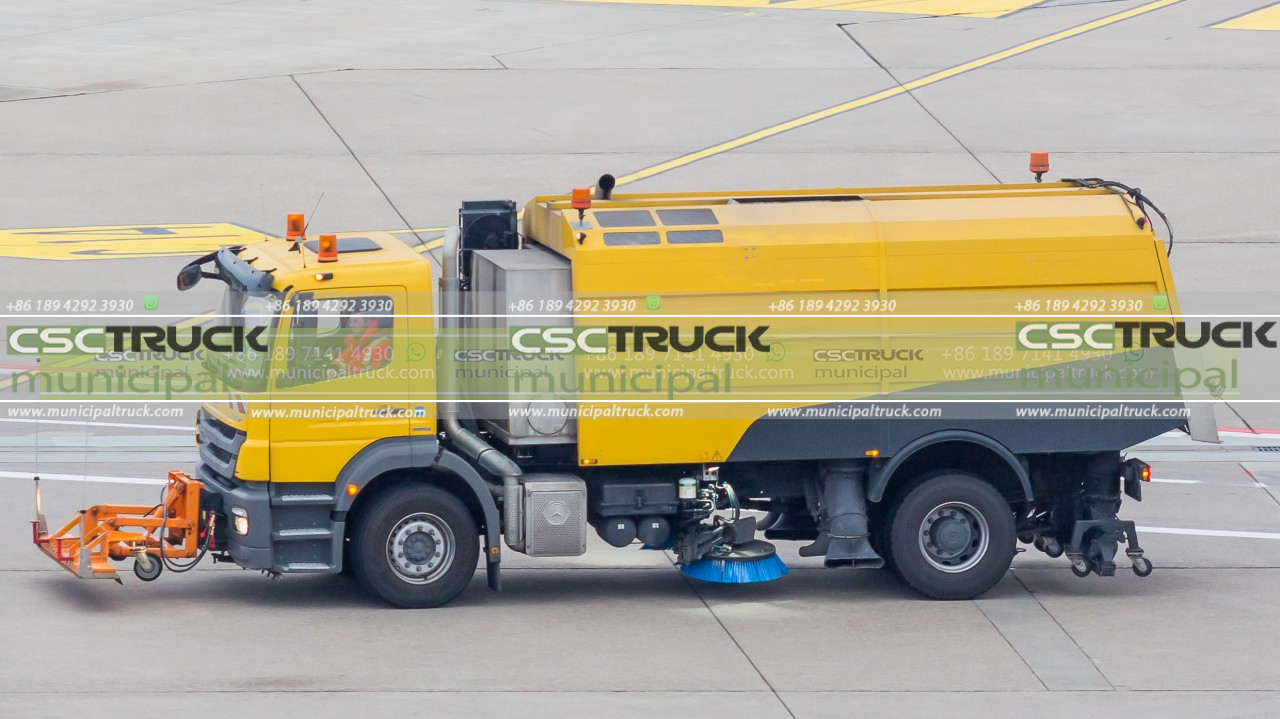
The Role of Sweeper Trucks
Sweeper trucks, also known as street sweepers, are specialized vehicles designed for efficient road cleaning. These trucks come in various sizes and configurations, but their primary function remains the same – to remove dirt and debris from roads and pavements. Equipped with powerful brushes and vacuum systems, sweeper trucks sweep the road surface, collecting dust, leaves, litter, and other debris.
One of the key components of a sweeper truck is its sweeping mechanism. The brushes attached to the front and sides of the vehicle rotate at high speeds, loosening and lifting dirt and debris from the road. The debris is then funneled into a collection hopper through a combination of air suction and vacuum systems. Some sweeper trucks even employ water sprays to moisten the road surface, making it easier to capture dust particles.
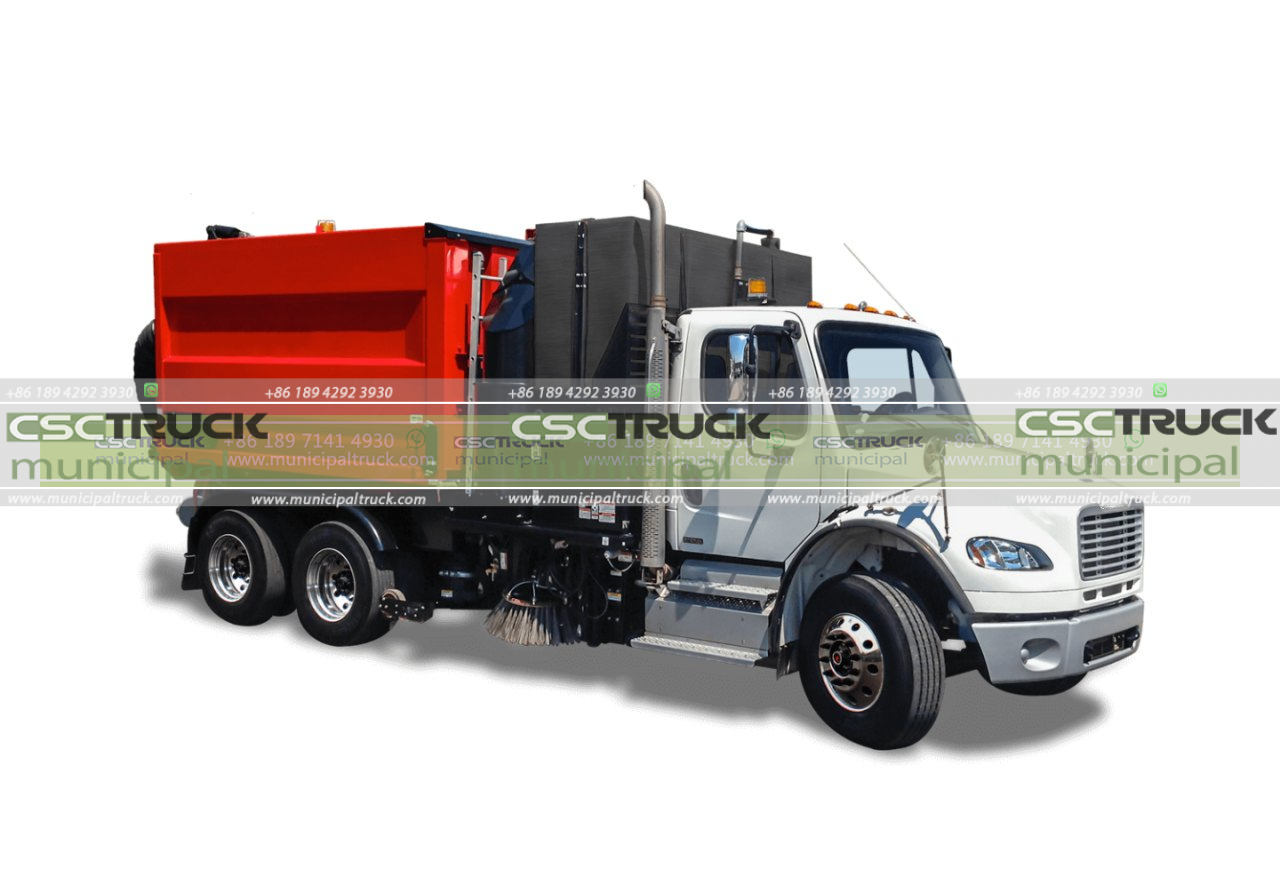
Efficiency and Technology
Efficiency is crucial when it comes to road cleaning, especially in densely populated urban areas. Sweeper trucks are designed to maximize productivity and ensure thorough cleaning within a limited timeframe. Modern sweeper trucks incorporate advanced technologies that enhance their efficiency.
One such technology is the use of regenerative air systems. Unlike traditional sweeping methods that rely solely on brushes and vacuum, regenerative air systems utilize a high-velocity air stream to agitate and lift debris from the road surface. This innovative technique allows sweeper trucks to pick up finer particles, such as dust and sand, more effectively.
Furthermore, many sweeper trucks are equipped with GPS tracking systems and automated route planning software. These features enable operators to optimize their routes and cover the maximum area in the shortest amount of time. By minimizing travel time and reducing fuel consumption, these technologies contribute to the overall efficiency and sustainability of road cleaning operations.
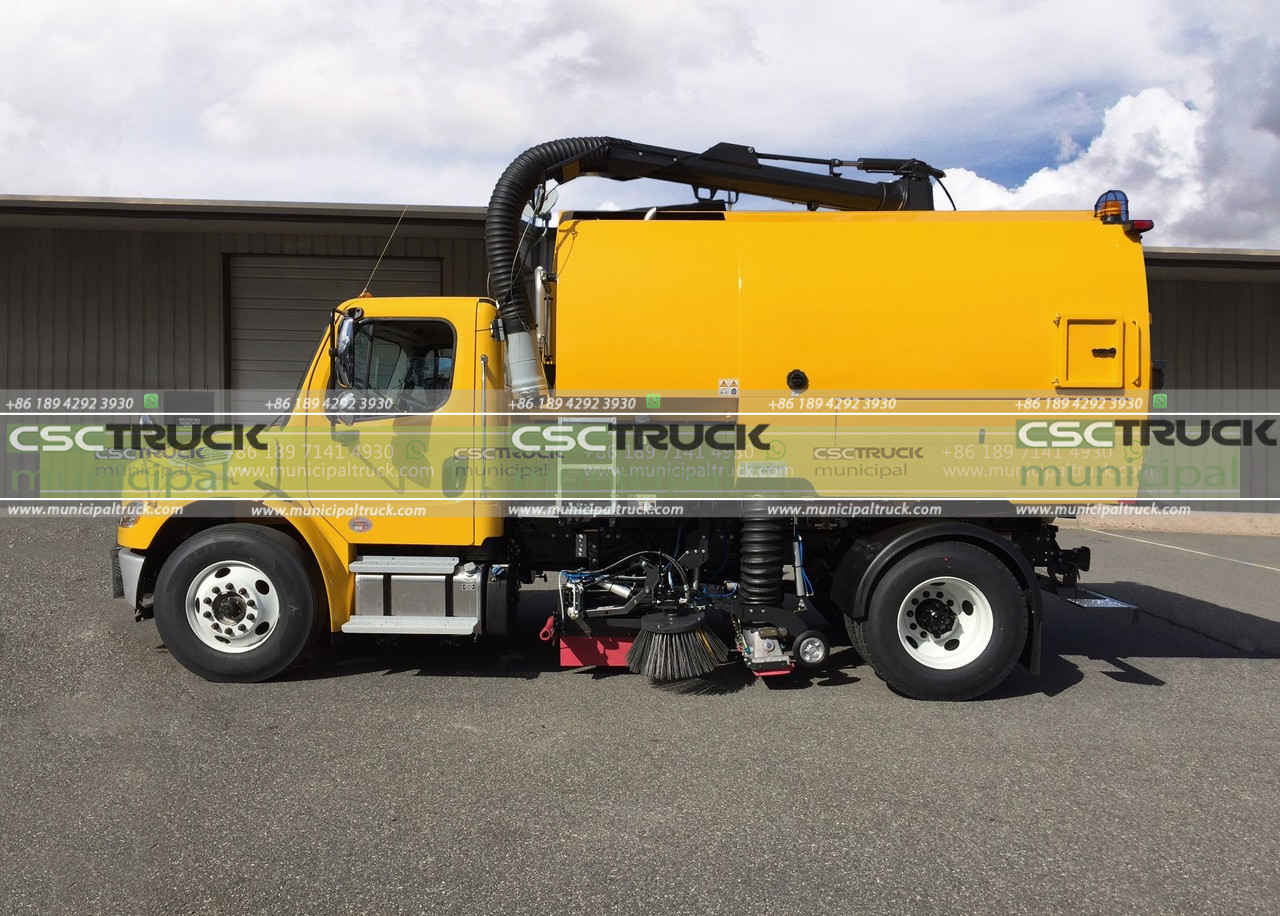
Environmental Considerations
In recent years, there has been an increased emphasis on environmentally friendly practices in road cleaning. Sweeper trucks have adapted to this shift by incorporating eco-friendly features. For instance, some models use alternative fuel sources, such as compressed natural gas or electric power, to reduce emissions and minimize the environmental impact.
Moreover, advanced filtration systems are employed in sweeper trucks to prevent dust and particles from being released back into the atmosphere. These filtration systems capture and retain particulate matter, ensuring cleaner air quality
Furthermore, advanced filtration systems are employed in sweeper trucks to prevent dust and particles from being released back into the atmosphere. These filtration systems capture and retain particulate matter, ensuring cleaner air quality. The collected debris is typically transported to specialized waste disposal facilities where it is sorted, recycled, or disposed of responsibly, further minimizing the environmental footprint.
Efficient road cleaning goes beyond the physical act of sweeping. It also involves proper waste management and disposal practices. Sweeper trucks play a significant role in this aspect as well. By collecting and removing debris from roads, they prevent it from entering stormwater drains and contaminating rivers, lakes, and other water bodies. This helps protect the local ecosystem and preserves the natural habitat of aquatic life.
In addition to their primary function of road cleaning, sweeper trucks also contribute to overall urban maintenance. Many models are equipped with auxiliary features, such as power washers and leaf blowers, which enable them to clean sidewalks, parking lots, and other public spaces. This versatility makes sweeper trucks a valuable asset for municipalities and urban maintenance departments.

The Benefits of Efficient Road Cleaning
Efficient road cleaning using sweeper trucks offers numerous benefits to cities and their residents. Firstly, it helps maintain a clean and attractive urban environment. Cleaner roads enhance the aesthetic appeal of the city, creating a sense of pride and well-being among residents. Visitors and tourists are also more likely to have a positive perception of a city that prioritizes cleanliness.
Secondly, efficient road cleaning improves public health and safety. By removing debris and contaminants from the road surface, sweeper trucks reduce the risk of accidents caused by slippery conditions or obstructed pathways. Moreover, regular road cleaning helps minimize the presence of allergens and pollutants in the air, promoting better air quality and reducing respiratory issues for residents.
Efficient road cleaning practices also contribute to sustainable urban development. By preventing debris from entering water bodies, sweeper trucks help protect the local ecosystem and maintain ecological balance. Additionally, the use of eco-friendly features and technologies in sweeper trucks reduces emissions and supports environmental conservation efforts.
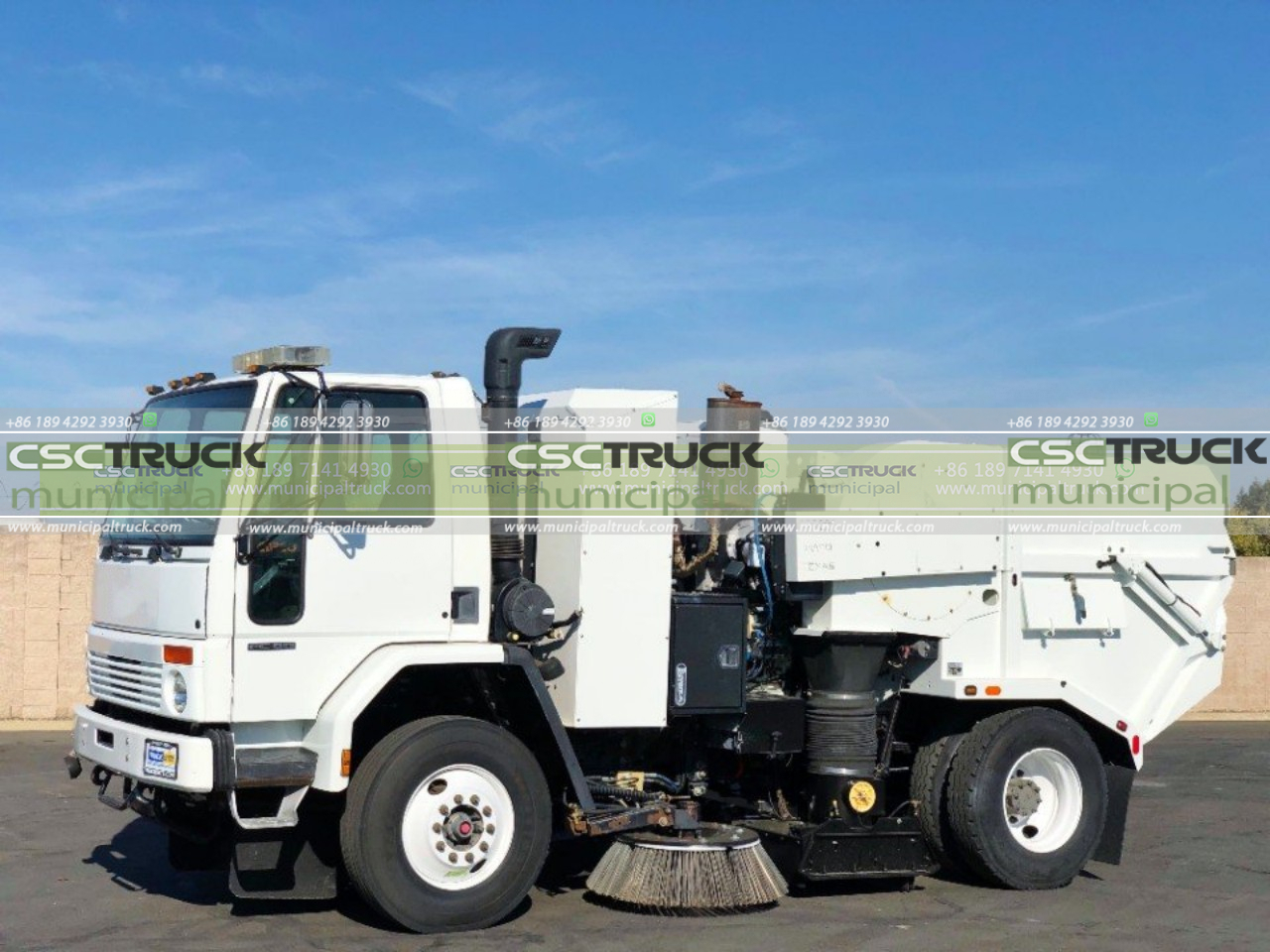
Conclusion
Efficient road cleaning is an essential aspect of maintaining clean and well-functioning cities. Sweeper trucks play a crucial role in this endeavor by efficiently collecting dirt, debris, and litter from road surfaces. With advanced technologies and eco-friendly features, these vehicles ensure thorough cleaning, minimize environmental impact, and contribute to the overall health and safety of urban areas.
By investing in efficient road cleaning practices and utilizing sweeper trucks, cities can create a cleaner, more attractive, and more sustainable environment for their residents and visitors. It is a testament to the commitment of urban authorities to prioritize cleanliness, public health, and environmental well-being. With continued advancements in technology and a collective effort towards efficient road cleaning, cities can pave the way towards a cleaner, tidier, and more livable future.
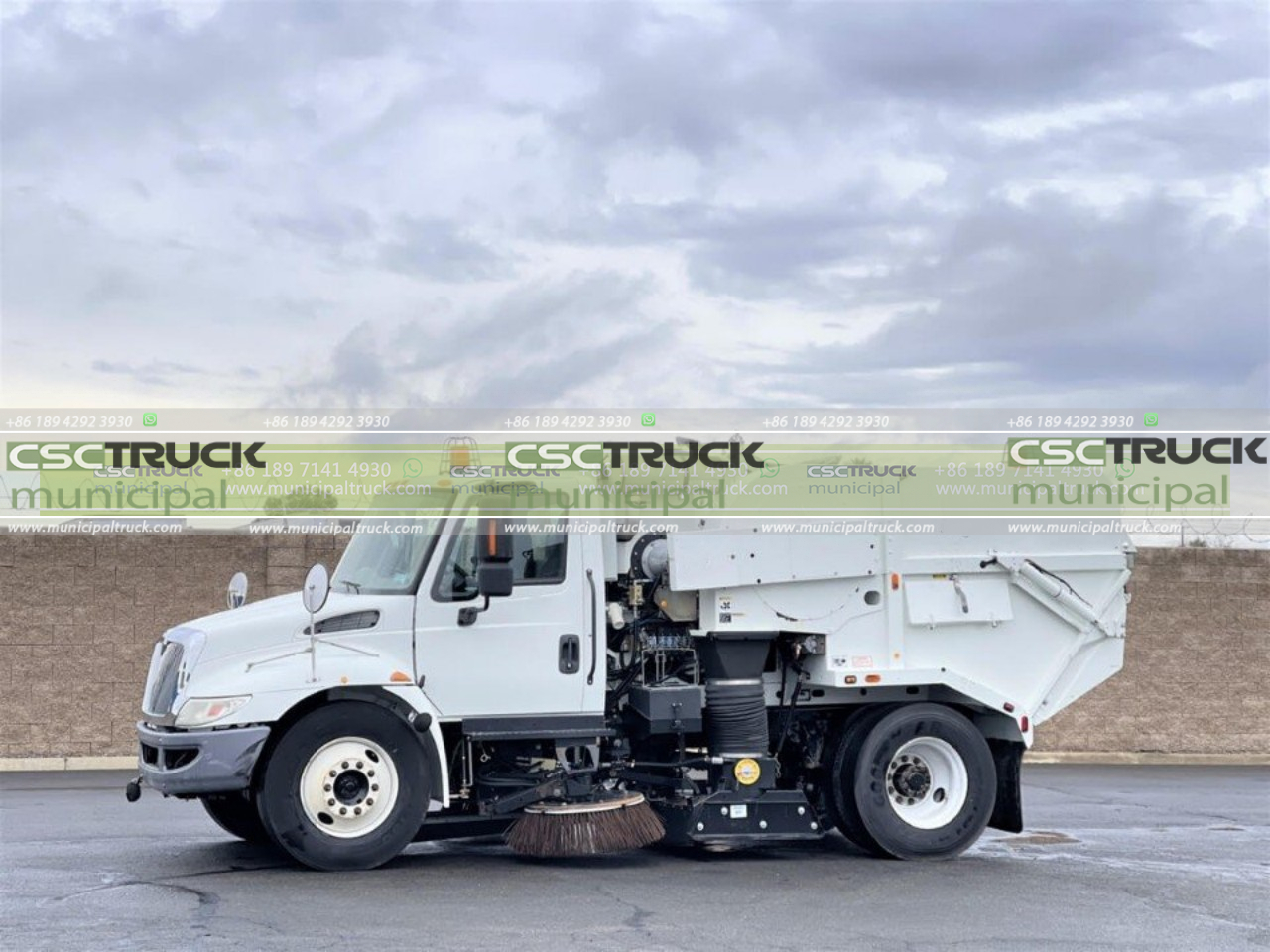
Contact us for this municipal truck or similar trucks: [email protected] Call us or What's APP us: +86 189 4292 3930
